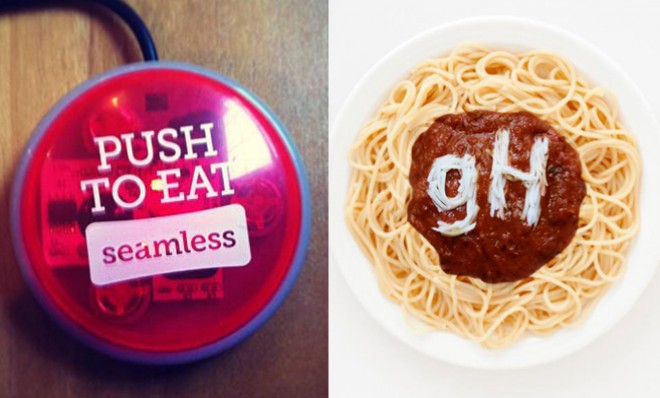Will the Seamless-GrubHub merger kill Yelp?
The two largest online delivery sites are poised to upend online reviewing
A free daily email with the biggest news stories of the day – and the best features from TheWeek.com
You are now subscribed
Your newsletter sign-up was successful
Seamless and GrubHub, America's two largest online food delivery services, have announced plans to merge. Together, they boast an impressive roster of 32,000 restaurants and more than 90,000 orders a day.
In 2012, Seamless and GrubHub brought in well above $100 million in revenue on nearly $900 million in food sales, says the Wall Street Journal.
Though the companies are waiting to officially tie the knot before announcing details (such as how much money exchanged hands, and what they're planning to call the new entity), CNBC says GrubHub co-founder and CEO Matt Maloney will take the title of chief executive, while Seamless CEO Jonathan Zabusky will be the company's president.
The Week
Escape your echo chamber. Get the facts behind the news, plus analysis from multiple perspectives.

Sign up for The Week's Free Newsletters
From our morning news briefing to a weekly Good News Newsletter, get the best of The Week delivered directly to your inbox.
From our morning news briefing to a weekly Good News Newsletter, get the best of The Week delivered directly to your inbox.
But the deal's not done yet. "This whole shebang is still subject to regulatory approval, so it's possible someone could raise... anti-competitive concerns down the road," says Chris Valazco at TechCrunch. Combining rosters does give the two delivery giants considerable heft over the competition. One of their main rivals, Delivery.com, for example, offers services of just 10,000 restaurants in 50 cities.
If the deal does go through, other delivery sites aren't the only ones who may struggle to battle this new heavyweight. Bloomberg Businessweek's Sam Grobart thinks Yelp, the increasingly popular online review site, could feel the burn as well.
But besides strengthening their own position, the companies are betting they can serve as a place for people to rate and discover restaurants, not just order from them. Seamless and GrubHub don't just feature menus and take credit-card numbers for orders — each restaurant has reviews from other people who have ordered from there…
Yelp and its brethren may have more restaurants listed and more reviews for each one, but since it lacks that final step — placing your order online — it's less useful to you, since all you're interested in are restaurants people like and are also taking online orders for delivery. [Bloomberg Businessweek]
Grobart points out that Yelp is huge (100 million unique visitors a month) and is already bolstering its point of weakness via a partnership with OpenTable, a service that lets users at least make reservations from their desktops or smartphones. Still, Yelp and OpenTable don't let you order delivery the way GrubHub and Seamless do.
But any Yelp-imperiling is likely far down the road. The next step is for GrubHub and Seamless to win a stamp of approval and come up with a new name. "For now though, I suspect that more than a few people are just happy knowing that they'll be able to order even more food from a single service," said Valazco.
A free daily email with the biggest news stories of the day – and the best features from TheWeek.com
Carmel Lobello is the business editor at TheWeek.com. Previously, she was an editor at DeathandTaxesMag.com.
-
 Quiz of The Week: 7 – 13 February
Quiz of The Week: 7 – 13 FebruaryQuiz Have you been paying attention to The Week’s news?
-
 Nordic combined: the Winter Olympics sport that bars women
Nordic combined: the Winter Olympics sport that bars womenIn The Spotlight Female athletes excluded from participation in demanding double-discipline events at Milano-Cortina
-
 Samurai: a ‘blockbuster’ display of Japanese heritage
Samurai: a ‘blockbuster’ display of Japanese heritageThe Week Recommends British Museum show offers a ‘scintillating journey’ through ‘a world of gore, power and artistic beauty’
